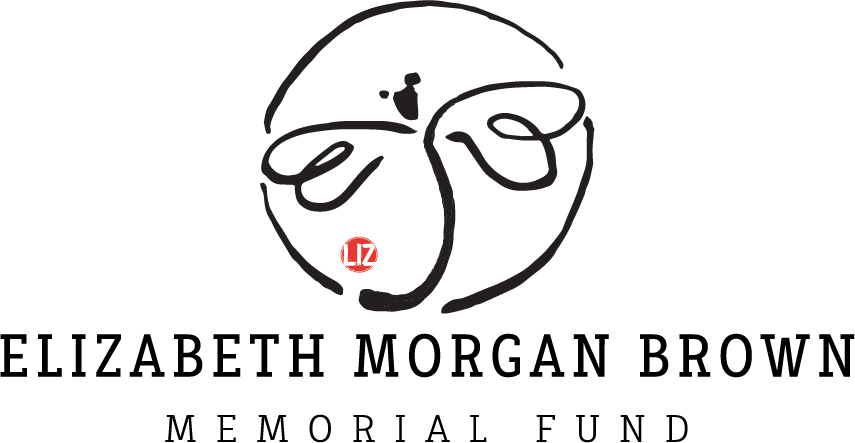Against the Grain
This essay was written for the Against The Grain Scholarship application. Elizabeth is one of the 2015 ATG Scholarship Winners.
Summer of 2014, Elizabeth was on a mission trip to Haiti with a group of people working with the brothers of the Missionary of the Poor (MOP). There, she helped the MOP brothers taking care of abandoned elderly people with dementia, children of HIV positive/AIDS patients and Cerebral Palsy children. She said that she felt most home when she was taking care of these people.
by Elizabeth Chung-Brown
Pascale was the spoiled child of the orphanage. Born free of disease and fairly healthy as far as the brothers of the community could tell, he was considered lucky among the other children with cerebral palsy and AIDS. Not to mention, his adorable round cheeks and pure gleaming eyes bought him special care and attention from many if not all of the volunteers. However, Pascale’s story is far from fortunate. Abandoned by his parents after Easter Mass at the brothers’ chapel, he was found crying alone on a pew bench and was welcomed with warm hearts to the community of the Missionary of the Poor. Whether at the tender age of three he really knows his story or not, his face still searches with quiet urgency for his lost family each Sunday within the crowds that come to church.
His story is among many others that I encountered in Haiti. There’s Theresa’s case, a sweet and gentle girl that always demanded to be held and would never laugh, but smirk slyly while holding someone’s hand. Or I could tell Patrick’s story, the school boy who asked me to take him back to the U.S. with me. Or I could even talk about Jeremy, our group leader who graduated from MIT, became a military lieutenant, and ended up pursuing seminarian life. Each and every one of them have different backgrounds, heartbreaking stories, happy stories, but all important and valuable stories nonetheless.
Art is the outlet that allows the stories of people to come alive. It serves as a conduit from the individual experience to the multiplicity of our human community. It allows all of us to live a reality we’ve never truly lived and brings our awareness to a focal point of value and truth in this vast web of human heart and connection. Everyone has a story to
tell, and everyone has felt the relatable connection of hearing another’s narrative.
My own life has been influenced by the stories of those around me. I would not be the musician I am today if my mother had never shared her childhood memory of longing for greatness as a musician. I would not be so passionate about writing if I had not fallen in love with the novels of Jane Austen, or if I had not listened to NPR so avidly in the car on my way to orchestra rehearsals. Most importantly, I would not have been influenced towards the decision to attend college two years early if not for a radio podcast starring a successful freelance worker telling his unconventional story that broke the norm and followed a nonlinear path that led him ultimately to his personal attainment of success and happiness.
My own experiences, pursuits, and encounters, have all brought collections of stories to me. Each time I go out to chase another opportunity, I return with precious sound bytes of memories and visual images of someone else’s tale. Writing has given me the voice to express these very vivid memories, to construct a meaningful message to an audience, and to shed light on the uniqueness, but universality found through identifying ourselves in one another.
My music also allows me to create a space of expression. I pick up my instrument to convey a very emotional presence that not only displays my individuality, but longs to connect to an audience as well. Music and art in general has inspired growth within me, but also has pushed me to share my passion with others. I have seen that music can heal, inspire, and invoke new depths within an emotional landscape we are all trying to navigate.
However, the most important thing, in my opinion, about the very real happening of art, is its ability to question and blur boundaries between misunderstanding, ignorance, and the vices that separate us from the unity art can create. My experience in Haiti reminds me to question the things I accept every day. I ask myself what I can do to help those in Haiti who gave me much more than I ever expected. The conversations prompted by sharing such stories can affect a community in profound and genuine ways, because we all intersect. Across cultures, across nations, across languages, art is universal. It creates a harmony that is encompassing of every voice and reaches across the boundaries that action can overcome.
My mission for myself is to be brave, to challenge myself beyond my capabilities all while maintaining sincerity and compassion. I am lucky to have been provided with art as a space for me to create, envision, and inspire other people. Leaping into the unknown is what art really is about. Instead of living in constant fear of what is different or the “other”, I want to embrace these things because it takes the risk necessary for promoting change. I have held the hands of old people who don’t speak my language and of sick children who can barely move, but through all of it, I have always felt lucky. I have felt lucky knowing that I coexist alongside those that suffer and that I have the ability to connect with them.
